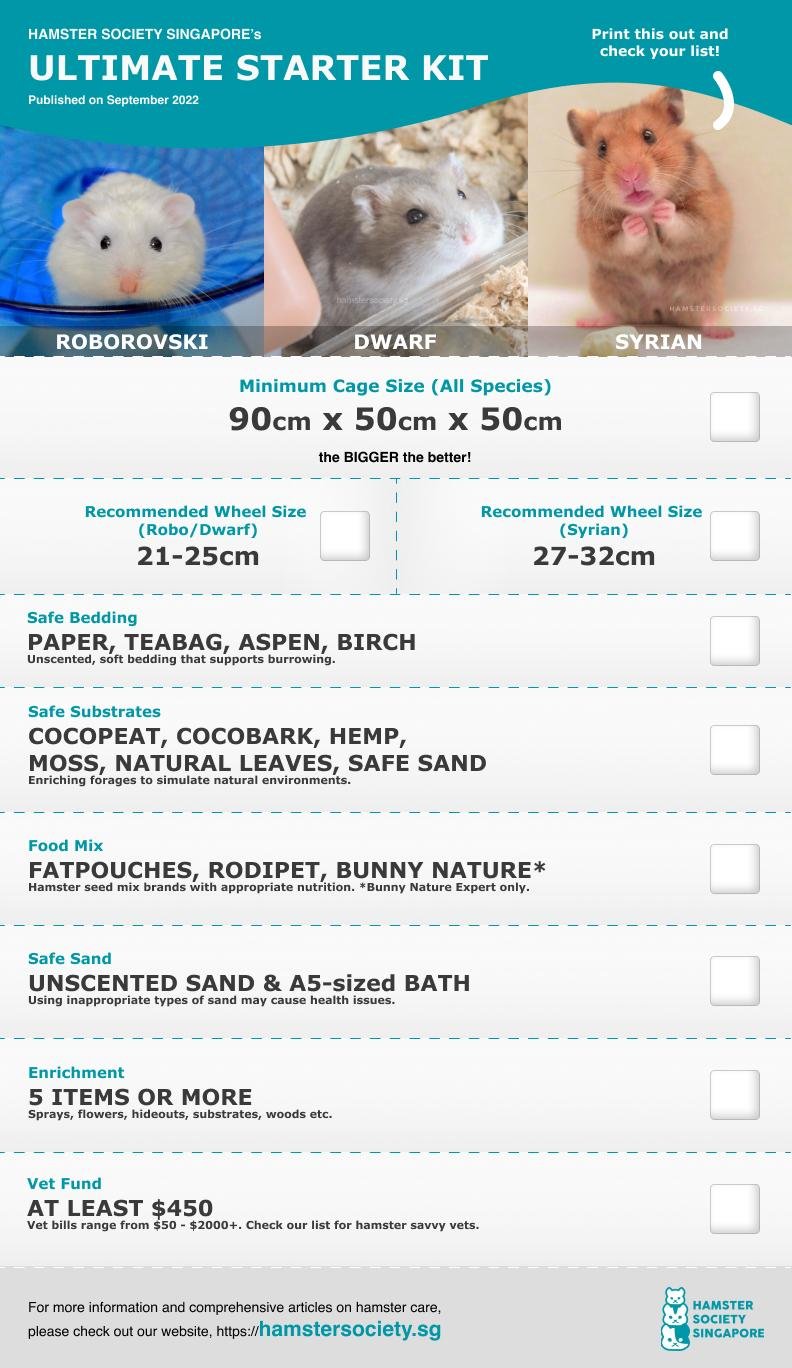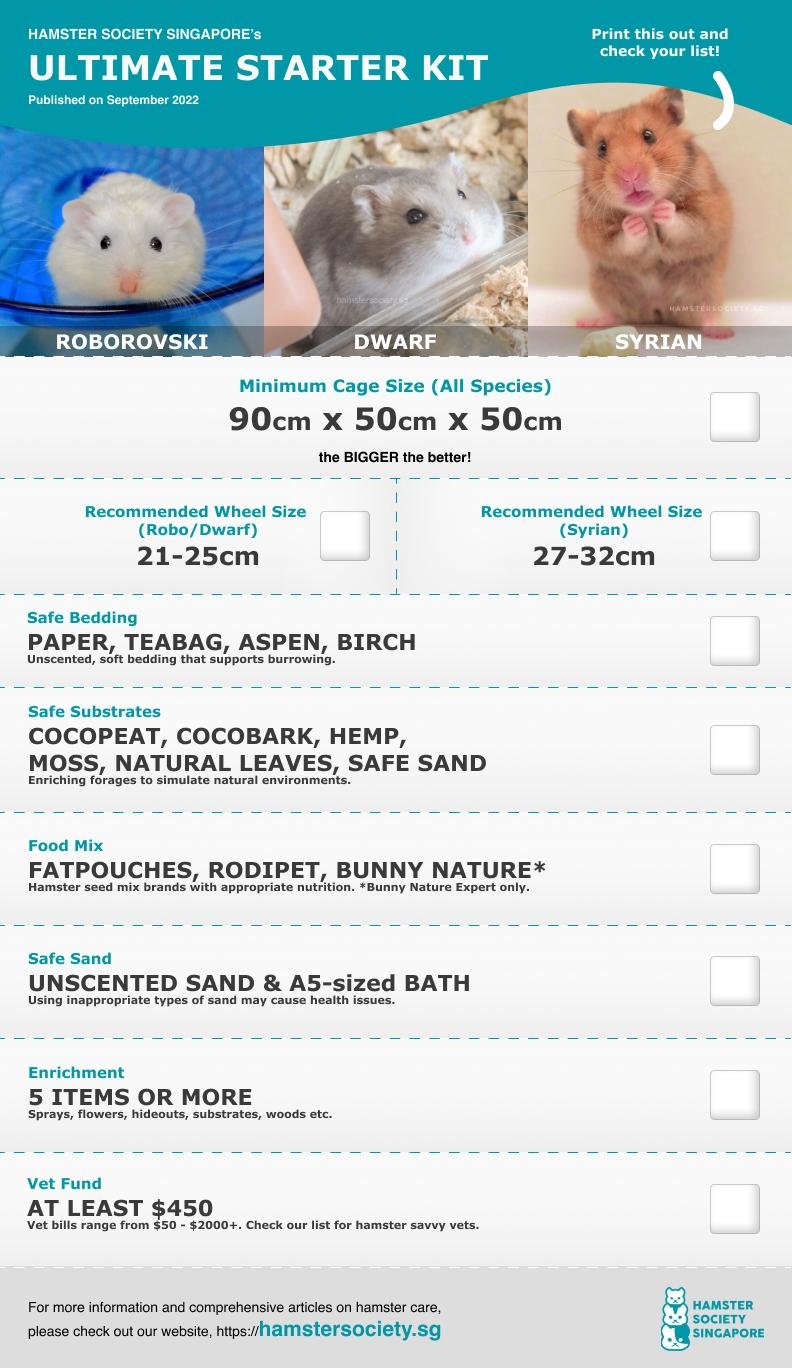Hamster Age-Appropriate Caring
Caring for a hamster can be a rewarding experience, but it is essential to understand that the care requirements may change significantly depending on the age of your pet. Whether you are nurturing a baby, an adult, or a senior hamster, each stage of life comes with unique needs. This article will guide you through the age-appropriate care practices that will help ensure your furry friend stays healthy and happy.
Understanding Different Hamster Life Stages
When considering hamster care, it’s crucial to recognize the different life stages your pet will go through: baby, adult, and senior. Each phase requires specific care tailored to the hamster’s developmental needs. Baby hamsters, for instance, are very delicate and require a nurturing environment, while adult hamsters will demand more from their surroundings and social interactions. By understanding these stages, you can create an appropriate habitat and care regimen that aligns with your hamster’s age and health requirements.
Care for Baby Hamsters
Baby hamsters, also known as pups, are usually born after a gestation period of about 18 to 21 days. At this stage, they are entirely dependent on their mother. If you find yourself in a position where you need to care for them, it’s vital to keep them in a warm, secure environment. Ensure they have a nesting area with soft bedding such as shredded paper or fleece to keep them cozy.

Feeding is also crucial at this stage, as baby hamsters need nutritious food to support their growth. Initially, they can rely on their mother’s milk; however, they can start to eat solid food around two weeks old. Introduce small amounts of hamster-specific pellets and soft fruits or vegetables. Always ensure fresh water is available, as hydration is key to their development. Remember, the interaction with baby hamsters should be minimized until they are around three weeks old to avoid stressing the mother.
Adult Hamster Care Needs
Once your hamster has reached adulthood, typically at one month of age, their care needs shift significantly. Adult hamsters are more independent and require a suitable habitat that allows them to express their natural behaviors, such as burrowing and exploring. Make sure to provide a spacious cage with plenty of toys, tunnels, and chewable items to keep them mentally stimulated.
Diet plays a pivotal role in adult hamster care. Their diet should consist of high-quality pellets supplemented with fresh vegetables and occasional treats. Monitor their eating habits, as adult hamsters can become overweight if fed too many treats or seeds. Regular interaction is also essential at this stage; handle your adult hamster gently to maintain a trusting relationship.
Senior Hamster Requirements
As hamsters age, they may experience a decline in activity levels and other health changes. Senior hamsters typically start showing signs of aging around the age of 2 years. It is essential to adapt their care accordingly. Ensure their cage is easily accessible as they may struggle with mobility. Providing soft bedding is also important, as older hamsters might have trouble getting comfortable.
Older hamsters may require special diets, like softer food options, to make eating easier. Consider replacing hard pellets with mashed vegetables or softer treats. Regular veterinary check-ups are advisable to address any age-related health issues, ensuring that they remain happy and content during their golden years.
Creating an Age-Appropriate Habitat
An age-appropriate habitat ensures your hamster feels secure and comfortable. The design of the cage and surroundings should consider the specific needs of baby, adult, and senior hamsters. For instance, younger hamsters need a nest and burrowing areas, whereas older hamsters may appreciate ramps and lower levels for easier navigation.
Setting Up the Cage
The cage should be spacious for all hamster stages. For baby hamsters, it’s advisable to have a smaller, contained area to prevent stress. As they grow, introduce more levels or accessories that encourage exploration. Avoid sharp or small items that could pose a choking hazard. Regular cleaning is vital for all age groups to maintain hygiene and prevent illness.
Enrichment Activities for Different Ages
Providing multiple forms of enrichment is essential for a hamster’s well-being. Baby hamsters benefit from gentle handling and interactions; this helps them socialize properly. Adult hamsters enjoy toys that they can chew on and exercise wheels for physical health. Senior hamsters may prefer low-impact toys and gentle handling to avoid stress. Rotate toys periodically to keep the environment stimulating and engaging.
Nutrition and Health Care Across Ages
Nutrition plays a critical role in a hamster’s life, and understanding their dietary needs at each stage can lead to a longer, healthier life. Baby hamsters require higher protein for growth, adult hamsters need balanced nutrition to maintain their health, and senior hamsters may need special dietary adjustments to prevent obesity and support their waning energy levels.
Balanced Diet Essentials
A balanced diet for all hamsters should include commercially available hamster pellets that provide essential vitamins and minerals. Fresh fruits and vegetables can be offered in moderation, ensuring they are safe for your pet. Always research which foods are hamster-safe; for instance, carrots and cucumbers are usually acceptable, while citrus fruits should be avoided. Remember to adjust food portion sizes based on their age and activity level to maintain a healthy weight.
Regular Health Check-ups
Regular health check-ups with a veterinarian experienced with small animals can catch potential problems early, especially as hamsters grow older, making preventative care crucial. Look for changes in behavior, eating habits, or physical health, such as weight loss or fur changes. These can indicate health issues that may need prompt attention. Establishing a reliable routine for health assessments will ensure your hamster remains happy and healthy throughout all life stages.
Key Takeaways
- Each life stage of hamsters requires specific care tailored to their developmental and health needs.
- Cage setup should consider accessibility and comfort for baby, adult, and senior hamsters.
- Regular nutrition adjustments are necessary as hamsters age, with an emphasis on quality food and hydration.
- Routine veterinary care can greatly assist in maintaining your hamster’s health throughout its life.
- Engagement and enrichment are critical for a hamster’s mental and emotional well-being, varying by age group.
FAQ
1. What is the best bedding for baby hamsters?
The best bedding for baby hamsters should be soft and absorbent, such as shredded paper or carefresh bedding. Avoid using cedar or pine shavings, as they can be harmful to their respiratory health. The bedding should also be deep enough to allow for burrowing, providing them with a sense of security and comfort.
2. How can I tell if my senior hamster is in pain?
Signs that a senior hamster may be in pain include changes in grooming habits, lethargy, reduced appetite, and unusual vocalizations. Observing their behavior closely will help you determine whether they are experiencing discomfort or health issues, allowing you to seek veterinary help promptly.
3. Can baby hamsters be handled by children?
Handling baby hamsters should be approached with caution. It’s best to wait until they are at least three weeks old and ensure that any interactions are gentle and supervised. Teach children how to handle them properly, emphasizing the need for a calm and quiet environment to avoid stressing the babies.
4. What foods should I avoid giving to my hamster?
Several foods should be avoided when feeding your hamster, including chocolate, caffeine, onions, garlic, and citrus fruits. These can be toxic or harmful to their health. Always research any new foods before introducing them to your hamster’s diet to ensure safety.
5. How often should I clean my hamster’s cage?
It’s recommended to clean your hamster’s cage at least once a week, removing waste, uneaten food, and soiled bedding. However, spot cleaning should be done more frequently to keep the environment clean and odor-free. A clean habitat promotes overall health and well-being.
